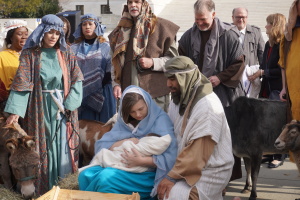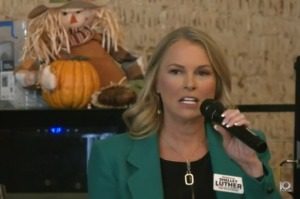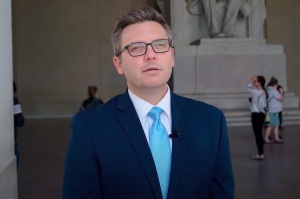Oklahoma Supreme Court to hear arguments in Catholic charter school case

The Oklahoma Supreme Court had agreed to hear oral arguments in the state attorney general’s attempt to block the creation of what is reportedly the first religious charter school in the United States.
The state’s highest court is scheduled to hear arguments in Oklahoma Attorney General Gentner Drummond’s lawsuit at 10 a.m. Central time on April 2, according to The Oklahoman.
Each side will get a half hour to present its arguments, according to the outlet, with Drummond being allowed to reserve some of his time for a rebuttal. A notice on who will be arguing the case and the time allocations must be filed by March 19.
In June of last year, the Oklahoma Statewide Virtual Charter School Board voted 3-2 to approve the charter application for St. Isidore of Seville Catholic Virtual School.
The newly approved St. Isidore was to be overseen by the Roman Catholic Archdiocese of Oklahoma City and the Diocese of Tulsa and was scheduled to begin holding classes in fall 2024.
Republican Gov. Kevin Stitt released a statement at the time expressing support for the decision, commending the board's "courage to approve the authorization for St. Isidore of Seville Catholic Virtual School."
"This is a win for religious liberty and education freedom in our great state, and I am encouraged by these efforts to give parents more options when it comes to their child's education," stated Stitt.
"Oklahomans support religious liberty for all and support an increasingly innovative educational system that expands choice. Today, with the nation watching, our state showed that we will not stand for religious discrimination."
However, the Republican state attorney general objected to the board’s decision and filed a lawsuit last October over concerns about the separation of church and state.
"As the defender of Oklahoma's religious freedoms, I am prepared to litigate this issue to the United States Supreme Court if that's what is required to protect our Constitutional rights," Drummond said in a statement released in October.
"The framers of the U.S. Constitution and those who drafted Oklahoma's Constitution clearly understood how best to protect religious freedom: by preventing the State from sponsoring any religion at all."
In addition to Drummond, multiple progressive advocacy groups also filed a lawsuit against the creation of the Catholic charter school last July, naming as defendants the Statewide Virtual Charter School Board, individual board members, the Oklahoma Department of Education, State Superintendent of Public Instruction Ryan Walters and Saint Isidore of Seville Virtual Charter School, Inc.
In November, the Oklahoma Supreme Court ruled that Walters could not intervene in the attorney general’s lawsuit against the state’s first religious charter school.
“This lawsuit is misguided in that it discriminates against some Oklahomans due to their faith, but also the fact that it is our agency that administers state aid for charter schools, not the Virtual Charter School Board,” said Walters in a statement about his motion to intervene in the case.
“Rather than enshrine atheism as a state-sponsored religion, we are blessed that our Constitution guarantees religious liberty. I will never back down in the fight to uphold religious liberty in our state.”
In a column for The Christian Post, Dr. Richard Land, executive editor of this publication, detailed reasons why the state should not be directly funding any religious school.
"If Catholics in Oklahoma want such a school, it must be funded by private money furnished by the supporters of such education. Let me be clear, I would oppose such a sectarian charter school if it were Baptist," he said.
"First, a charter school is a 'public' school funded by public tax money and must be open to serve students regardless of religious conviction. The Oklahoma Charter Schools Act requires charter schools to 'be as equally free and open to all students as traditional public schools' and remain 'nonsectarian in (their) … admission policies {and} employment practices.'
"And yet, the Oklahoma Charter School Board approved the St. Isidore of Seville Virtual Catholic School as a public charter school. Furthermore, the St. Isidore of Seville Catholic Virtual School website identifies the school as 'a collaborative effort between the Archdiocese of Oklahoma City and the Diocese of Tulsa to serve students in Oklahoma' and to provide 'quality Catholic education' to students with limited access to a Catholic school.
"Those are admirable goals for adherents of the Catholic faith, but they cannot be accomplished through a public school funded by public tax funds,' Land continued.
"[A]ny discussion of the Oklahoma charter school situation must include a clear distinction between public support of a charter school and the government providing parents with vouchers or tax credits to help underwrite their children’s education at a private school of their choice."




























